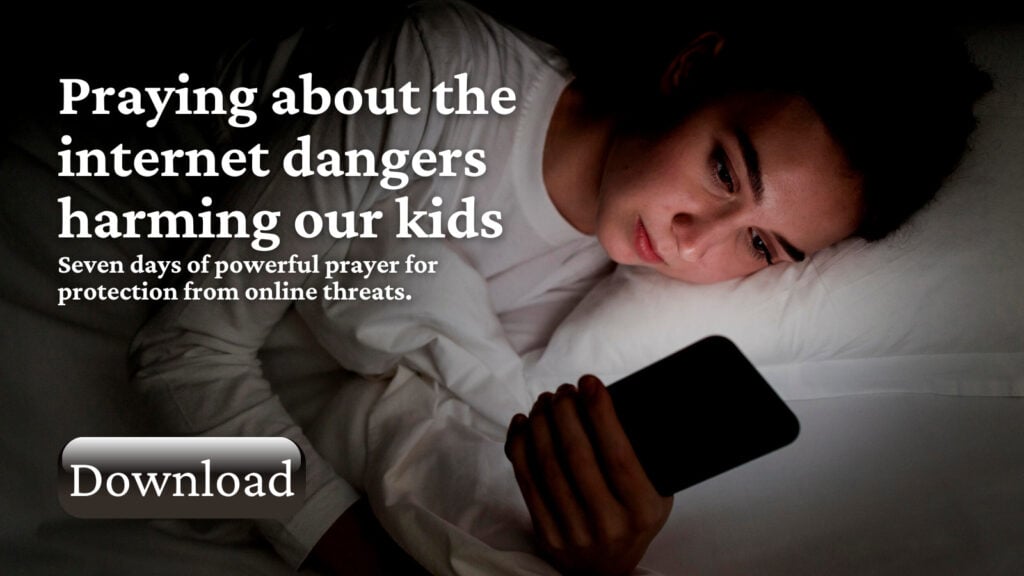
Analysis. Lawmakers recently reintroduced a bipartisan bill to enhance safety precautions for children on social media and other Big Tech platforms. The Kids Online Safety Act aims to give minors, parents, and the public new tools to protect young users and hold tech companies responsible for ensuring a suitable environment on their platforms.
This content is supported by your donations.
Give today.
One of the bill’s sponsors, Sen. Marsha Blackburn (R-Tenn.), noted that in recent years she and her colleague, Richard Blumenthal (D-Conn.), had visited with numerous parents and medical professionals who were convinced that online platforms are hurting kids.
“Kids are being exposed to things in the virtual space that we would never expose them to in the physical space, so it’s important for parents to have that toolbox, and it’s important to put the responsibility on these social media platforms,” she told the Daily Signal.
Blumenthal added in a statement introducing the bill that our country is facing historic amounts of hopelessness and despair, particularly among teens. He said this crisis is “fueled by black box algorithms featuring eating disorders, bullying, suicidal thoughts, and more.”
“Kids and parents want to take back control over their online lives,” he declared.
Concern about an escalating crisis is not limited to these senators. In fact, just last week U.S. Surgeon General Vivek Murthy issued a health advisory warning against the dangers of social media for the minds of children and adolescents.
“Children are exposed to harmful content on social media, ranging from violent and sexual content, to bullying and harassment,” he said. “And for too many children, social media use is compromising their sleep and valuable in-person time with family and friends.”
The Surgeon General’s office highlighted data that indicates nearly all youth ages thirteen to seventeen use social media, and more than a third of them report being on those platforms “almost constantly.” The data also shows that those who spend more than three hours per day on the platforms face significantly increased risks of experiencing depression and anxiety. Other risks include body dissatisfaction, eating disorders, and low self-esteem.
“We are in the middle of a national youth mental health crisis, and I am concerned that social media is an important driver of that crisis – one that we must urgently address,” Vivek declared.
The Kids Online Safety Act would take steps to address this situation by assigning tech platforms a specific duty to ensure they are not promoting harms like suicide, substance abuse, and sexual exploitation to minors. It would require companies to allow children to opt out of algorithmic recommendations and have access to other protective settings by default. And new sets of Big Tech data would be subject to public inspection and annual independent audits to assess each platform’s risks for children and the effectiveness of their efforts to mitigate such concerns.
Blackburn also emphasized to the Daily Signal, “It would give parents a portal that they could report some of this harmful activity, such as cyberbullying, attracting children to pedophiles, to drug dealers,… and postings that encourage self-harm, like suicide and bulimia.”
Of course, not everyone is pleased with the bill. One coalition of tech advocates, academic institutions, and a number of progressive groups fought last year’s iteration of this bill. In a group letter they worried about “parental surveillance” in some situations, burdens on schools and libraries, age verification and other increased data collection, and what they believe is the bill’s “instruction to employ broad content filtering to limit minors’ access to certain online content.”
NetChoice – an alliance that includes tech companies like Google, Meta (Facebook), and TikTok — also criticized the bill’s increased regulation of the internet and appealed to the idea that parents, not a “oversight board of DC insiders,” should decide what’s best for their kids online.
“KOSA’s requirements will… cause unintended consequences, such as overcollection of user data,” said a NetChoice leader. “Thankfully, many tools already exist to give parents control over how their children and teens use technology. The solution is empowering parents to take advantage of these tools.”
But Sen. Blackburn pushed back on such arguments in her interview with the Daily Signal. Regarding parental responsibility specifically, she said the problem is that Big Tech platforms too often ignore or stiff-arm moms and dads.
“We have parents who have reported things like the TikTok choking challenge, things that cause suicide or cause death, and things that encourage bulimia, and the social media platforms refuse to remove these,” she said.
In his own comments Sen. Blumenthal emphasized the rallying of ”young people who’ve seen Big Tech’s destruction, parents who’ve lost children, mental health experts, and public interest advocates” around the Kids Online Safety Act.
“It’s an idea whose time has come,” he said.
The Kids Online Safety Act and other related legislation in Washington and in state capitals are attracting much interest. Will you pray for wisdom on Capitol Hill and beyond as government, corporate, and parental advocates attempt to improve child safety online in a wise manner that honors the proper societal roles of family and government?
How are you praying for children on the internet? Share this article to encourage others to pray.
Aaron Mercer is a Contributing Writer with two decades of experience in Washington, D.C.’s public policy arena. Photo Credit: Canva.

